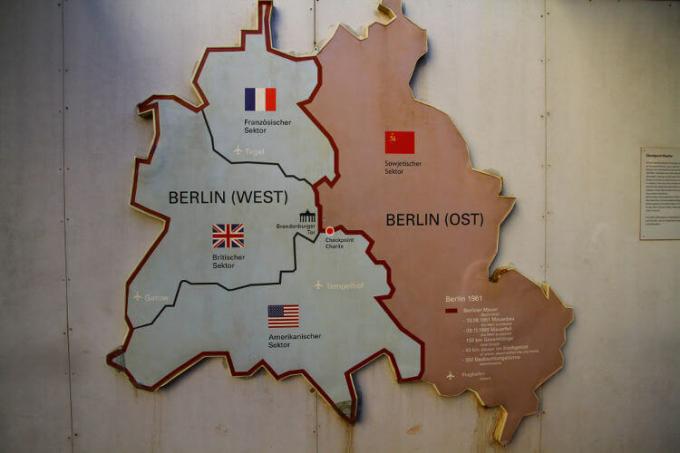The series of attacks carried out by world powers seriously aggravated the situation in the Middle East. This worsening is premised on the Bush Doctrine that after the fateful September 11, 2001, begins its climb from attacks on countries in the Middle East, changing focus many times to losing it completely, as we see today.
The first on the list was a Muslim country, but not an Arab one, which, according to American specialists until then, was a totally unknown difference, the Afghanistan, state accused of harboring terrorists and hiding the intellectual mastermind of the September 11 attacks and al-Qaeda chief Osama bin Laden Afghanistan lived under a theocratic and rigid regime called the Taliban, a group of Clerics called of Mullahs who ruled the country with an iron fist on the harshest application of Shariia Islamic Law.
The American attack on Afghanistan has awakened an extreme nationalism, to which the western world does not have the degree of intensity, which motivates Arabs and Islamic fanatics to defend their own sovereignty and territory with blood.
Afghanistan was an American quagmire where losses were great, but at the end of the conflict the United States they managed to implement 'democracy by force' by electing a parliament and appointing a pro-US leader.
This was just the beginning for the generalization of the conflict in the Middle East which already contained a level of extremely great tension due to the eternal Israeli-Palestinian conflict, but this I will deal with more forward.
The second North American onslaught on the Middle East was the Iraq War, also called by some historians the Second Gulf War, occurred by the US government's unconfirmed suspicions of the Saddam Hussein regime and its development and trade in chemical and biological. This was the trigger for the Second Gulf War carried out only by the North Americans passing by. over United Nations Security Council resolutions that did not approve an attack on the Iraq.
The result of this was the deposition, hunting and imprisonment of Iraqi leader Saddan Hussein in his hometown of Tikrit in a subterranean hideout in appalling living conditions. Saddan was arrested, tried and sentenced to hang by the international court of justice, accused of crimes against humanity, the genocide against the Kurds and the use of chemical and biological weapons.
After the fall of Saddan, Iraq turned into chaos where it is today, even after having a new elected president and a council where the leaders of all ethnic groups that exist in the Iraq. Today, in the post-conviction of the Iraqi leader, the situation is only going to get worse.
The parallel state or parallel state power assumes this role for having weaknesses enormously aggravated by a social upheaval, we read civil war or continuous external conflict. This parallel power is organized through political, religious, social factions, has a bureaucracy and even a monopoly of force that in States, in the real conception of the word, is made by the army and in this case of parallel State is carried out by the Militias faithful.
Most parallel states in the Middle East are theocratic in nature, almost always pushing a policy towards radicalism. These states can only be controlled by dictatorships where power is concentrated in the hand of a man who through repression controls these insurgents. It is a miscalculation to try to transform Middle Eastern States, with all these conditions and aggravations, into Democratic States in the Western mold.
With each new conflict a new escalation of violence and the next upheaval in the Middle East was Israel's conflict against Hizbollah militants, too. known as the second Israel-Lebanon War (2006), which once again ravaged the area with carnage and humanitarian disaster so little seen in the story.
Started mostly by dissident groups, the conflict in the Middle East gains greater proportions due to the strong North American support for the presence of Israel in the region. Factor that generator of instability, because if Israel is not an extremely armed country and supported by powers, it runs the risk of no more exists, now if it continues to be supported and extremely armed and still maintains American support it will continue to generate hatred towards the Arabs.
Perspectives for the future
The prospects are not good, as there are still separatist outbreaks in several countries in the Middle East, which is the case of the Kurds, the Shiites in conflict with the Sunnis, etc.
This only heightens the level of tensions in the Middle East and could lead to a single and long-lasting war throughout the area. This would elevate the planet to social, humanitarian and mainly energetic chaos due to the area having the largest sources of oil and its products coming from the planet. The energy collapse, as the planet is energetically supplied by this area, will be inevitable. This encourages the creation of parallel states, not only in the Middle East, but throughout the world, but there the problem is even greater due to some factors:
Ethnic diversity, that is, various peoples claiming their independence within a State;
The instability fostered by non-Eastern countries in support of coups will delegitimize elected governments...
And, especially the worst of them, the lack of Arab Unity not seen since the attempt of this feat by Gamal Nasser (Nasserism) the unity has been unraveling in conflict after conflict.
We would have after this disaster transformed the Middle East region into a totally new Africa unassisted and dependent, with the wealth and prosperity of the Middle East kept only in the books of Story.
Do not stop now... There's more after the advertising ;)
Per Alexandre Milan Rodrigues
Graduated in International Relations Unibero-SP
Columnist Brazil School
See too!
osama bin laden
The terrorist who challenged the United States with the attack on the World Trade Center in 2001.
Story - Brazil School

